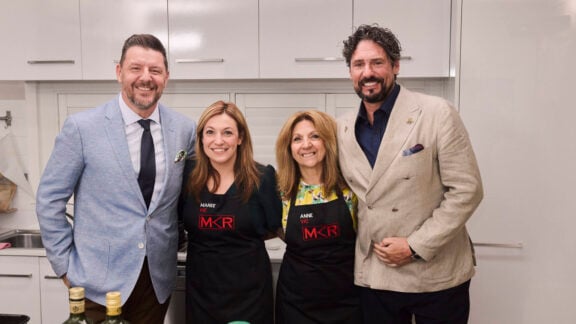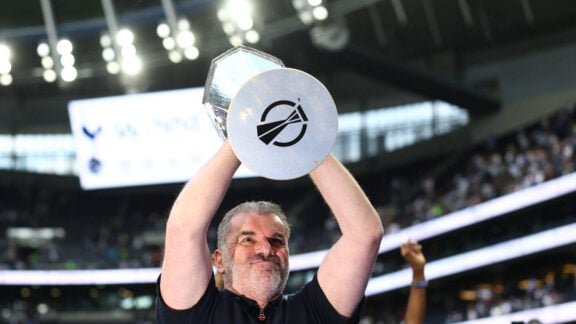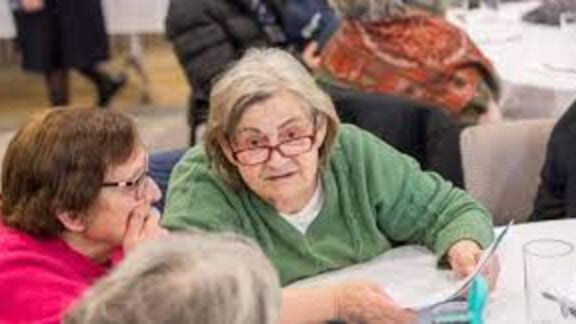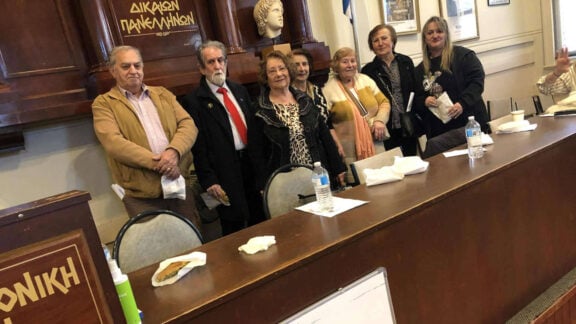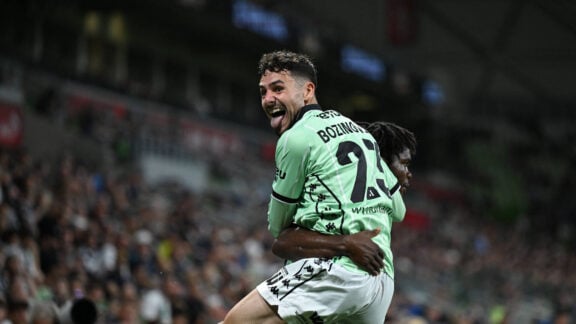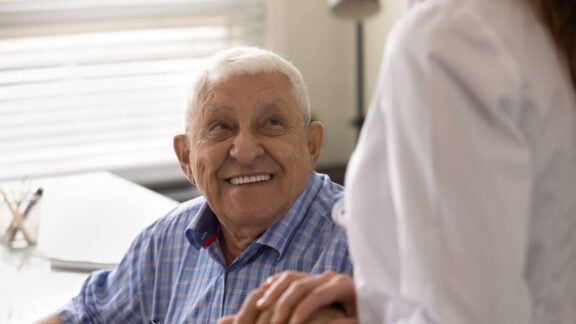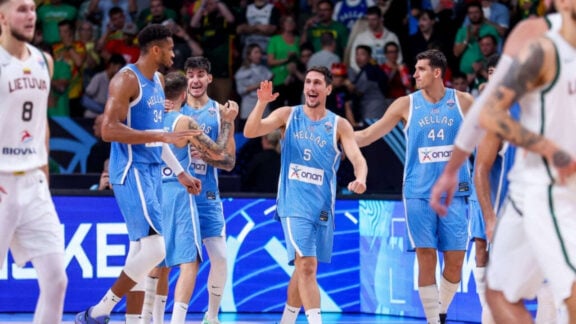We are at a crucial historical junction. Do we want thousands of years of history and culture to vanish? It is no exaggeration to say that our society is producing radical transformations. For all the profound changes that our parents witnessed as they left muddy and flyblown villages, to work in industrial factories, and pave their homes with concrete driveways, the changes that are now before us in this digital age are even more revolutionary. We live in a globalising world. The effect of this is that things that were once held close in are being spread out. Ideas, goods and people are on the move.
“An outward vision must include an engagement with the screens that already dominate our lives.”
Our culture is part of this turbulent world. For it to survive it needs to be part of this world. It needs to be relevant and inspirational. It has to serve as a practical guide for living, and a source of wonder that stimulates thought. Culture only exists insofar as people believe in the ideas that are held within them. It is from this collective belief that institutions are built. There is no such thing as a private culture. Culture starts in the public space, the agora, the ecclesia. And for the ancient Greeks, this urge to go out, to be part of the public, to participate in shaping the common good was considered as the natural state of our human identity. A person who ‘withdrew’ from the ‘koino’ and only focused on their personal well-being was referred to as an ‘idiot’. This term did not mean mentally inferior, just private like in the word idiosyncratic.
You have already had a glimpse of what the Greek Community is doing to preserve, stimulate and expand our culture; the education program in modern and Ancient Greek, the cultural lecture series, music programs, dramatic events, and festivals dedicated to film, literature and the glendi that are all part of this vision to make our culture a vital and contemporary feature of this city.
What I would like to now urge you to think about is how we go forward and capture the attention and interest of both the next generation of Greek Australians and the wider community. Our challenge is to think of our Greekness, romioisini, in a global age. And the solution is already to be found from the example of the people in this room. We are lucky to be surrounded by people who are already shaping the common good. It is incumbent upon us to bring in closer to us the Global Greeks. We have brought out such extraordinary singers such as Mihali Hatizigianni, and now in partnership with the Melbourne Jazz Festival we are bringing out Maria Farandouri. Filmmakers like Pantelis Voulgaris have come here, why not bring out the great Nick Cassavetes? Last year we had a packed house at the Wheeler Centre when we presented Christos Tsiolkas, imagine how many would come to hear George Pelecanos, the author of a dozen crime novels and the television series The Wire. George Lucas would have to be one of the most influential people in Hollywood; he is also one of the biggest collectors of rembetika memorabilia in the world. His films are, in his own words, adaptations of Greek myths. Marc Newsome, a 3rd generation Greek Australian from Sydney, is now the most highly sought after designer in the world, and when asked why he always uses the colour blue, he responded by saying, because it is in the Greek flag. Lucas Samaras, one of the important artists in New York, begins his catalogue with an aerial photograph of Kastoria, and declares that this place, his birthplace, is “my unconscious and my dream”.
Let me zoom out and give you some examples of how museums and cultural centres around the world are responding to the challenge of reaching out in a globalising world. So we start with the first institution in the modern age to display world culture. The British Museum set out to explain to its citizens that, through its imperial conquests, it had acquired objects from all over the world in London. Ladies and gentlemen could come there in the middle of the day, have a cup of tea, and be educated. Of course, there was a strict dress code, and it was closed in the evening and on week-ends, so workers were excluded. Nevertheless, the aristocrats learnt that the first and most important room, in fact the only room that set out to reproduce in scale the object of veneration, was the space that displayed the Parthenon frieze. This was the starting point in their story of world civilisation.
After the French Revolution, the National Assembly decreed that the former King’s Palace should be converted into a museum to display national treasures. Three days a week the public was given free access. The Louvre has now become such a success with tourists from all over the world that the French citizens, who refuse to queue, have to travel to provincial museums in order to get a chance to see their own culture.
In our own region, the Greek boy from Fitzroy, Nonda Katsalidis, and the bad boy from the casino, David Walsh, collaborated in producing the marvellous Museum of Old and New Art (MONA). The outcome of this crazy venture in Hobart has been the state’s single biggest cash injection through tourism, and an unprecedented boost in cultural engagement. Clearly a cultural institution can make a difference.
So what can we do to make this corner of Melbourne a vital part of our city, an example for the future of multiculturalism in Australia, and a beacon in the Greek diaspora? We can build a ‘state of the arts’ home for the events, lectures, classes and festivals that we are already hosting. We can attract the Global Greeks to this precinct. And perhaps most importantly, we can look into the make up of our own families, and out of our windows, and pay attention to faces that are looking back at us.
Many people are in, or the product of, mixed marriages. English is now the preferred language in most of our events. Across the road in ‘our’ restaurant [Stalactites], the tables are full of Asian students. How will we address, entice and connect with these new faces? What is the medium that can bring us closer together?
The global force of digital technology is spreading and spinning things in an outward trajectory. I believe we need to turn this platform around, and use it to bring us closer together. The Asian students and our children have a new first language. My daughter could press buttons before she could speak. In Asia the urban skyline is already like the scenes in Blade Runner. This is their normal world. To bridge this new world we need to look outwards rather than turning in ourselves. An outward vision must include an engagement with the screens that already dominate our lives. Remember what happened on this street corner when Greece won the European cup. Think what it would be like in the near future if, during such events, we could link up in real time with Greece and other parts of the Greek diaspora via a large screen on our building.
I am proud to be part of this event. I feel honoured to be among so many people who have contributed so much of their time and money to making this new cultural institution. It is fast becoming a new venue for discussion and learning, a place of wonder and delight, a site where there is glendi and kefi, on where else, the rooftop! We will be open late, and it will be a place where we can all meet as equals. Perikles described Athens as the School of all Hellas. Let this new cultural centre be a place for re-inventing the Greek diaspora, an example for all minority communities, and a place of learning for our cosmopolitan world.
*Nikos Papastergiadis is Professor for Cultural Studies, Media and Communications at the University of Melbourne. He is also a member of the Steering Committee for the development of the Greek Centre for Contemporary Culture and a member of the Steering Committee on Education of the Greek Orthodox Community of Melbourne and Victoria (GOCMV). This is an edited version of Professor Papastergiadis’ speech delivered this week at a fundraising event for the Greek Centre for Contemporary Culture.

